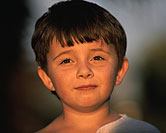- Could Your Grocery Store Meat Be Causing Recurring UTIs?
- Are You Making This Expensive Thermostat Error This Winter?
- Recognizing the Signs of Hypothyroidism
- 10 Strategies to Overcome Insomnia
- Could Artificial Sweeteners Be Aging the Brain Faster?
- Techniques for Soothing Your Nervous System
- Does the Water in Your House Smell Funny? Here’s Why
- Can a Daily Dose of Apple Cider Vinegar Actually Aid Weight Loss?
- 6 Health Beverages That Can Actually Spike Your Blood Sugar
- Treatment Options for Social Anxiety Disorder
Typical ADHD Care Leaves Room for Improvement, Study Finds


Many pediatricians provide inadequate care for children with attention-deficit/hyperactivity disorder (ADHD), relying too heavily on drugs and failing to thoroughly assess kids’ symptoms, a new study reports.
Nearly one-third of pediatricians who diagnose children with ADHD do not consult the Diagnostic and Statistical Manual of Mental Disorders, a necessary step in determining if the kids meet the criteria for the brain disorder, researchers found.
A large number of pediatricians also do not gather parent and teacher ratings of a child’s day-to-day behavior, information that is crucial in diagnosing ADHD and tracking whether prescribed therapies are working, the study said.
And finally, doctors appear to lean heavily on drugs for treating ADHD. Nine out of 10 kids with ADHD are on some sort of medication. But only one out of 10 kids is receiving behavioral therapy or psychotherapy as well, according to the study.
“The quality of care seems to be very low and not in accord with American Academy of Pediatrics guidelines,” said lead author Jeffery Epstein, director of the Center for ADHD, Behavioral Medicine and Clinical Psychology at Cincinnati Children’s Hospital.
Children with ADHD exhibit levels of inattention, hyperactivity and impulsivity that can hurt their social and family relationships and impede their learning, according to the National Institute of Mental Health. The U.S. Centers for Disease Control and Prevention estimates that 9 percent of American children 5 to 17 years old have the condition, which often continues into adulthood.
A “combined approach of medication plus counseling is often considered the optimal approach,” said Dr. Andrew Adesman, chief of developmental and behavioral pediatrics at Cohen Children’s Medical Center of New York.
Researchers reviewed ADHD care by reviewing nearly 1,600 patient charts at random from 188 pediatric health care providers at 50 practices in central and northern Ohio, according to the study.
While more than 93 percent of ADHD children take medication, only 13 percent receive some form of therapy as well, according to the study published online Nov. 3 in Pediatrics.
“Although behavioral treatments are considered a first-line treatment for preschool and grade-school children with ADHD, very few families received this type of [non-medication] treatment in a community setting,” said Adesman, who was not involved in the study.
Pediatricians also largely fail to gather parent or teacher impressions of how well a child’s ADHD treatment is going. Only 10.8 percent of patient charts contained a parent’s rating of ADHD symptoms within the first year of treatment, and only 7.5 percent had any rating of symptoms from teachers.
“The guidelines suggest pediatricians should collect rating scales to see if medications are having the right and optimal effect,” Epstein said. “These reports from parents and teachers are critical.”
Nearly half the time, pediatricians also did not gather these behavioral rating scales from parents and teachers before diagnosing a child with ADHD, “despite unambiguous guidelines from the American Academy of Pediatrics,” Adesman noted.
Pediatricians likely aren’t following through with the rating scales because it can be time-consuming to get them out to parents and teachers, and then have them returned and processed, Epstein said.
“It’s an effort-filled process that isn’t reimbursed very well, and therefore it just doesn’t get done,” he said.
Also of concern, in 30 percent of cases, pediatricians are not consulting the DSM-5 before diagnosing a child with ADHD, researchers found.
A manual produced by the American Psychiatric Association, the DSM-5 serves as a universal authority for accurately diagnosing psychiatric and behavioral disorders. The American Academy of Pediatrics advises pediatricians to consult the DSM-5 before diagnosing ADHD.
“We found it was being used in about 70 percent of cases, and it should be used 100 percent of the time,” Epstein said.
Adesman said the study “highlights many areas for improvement when it comes to pediatricians’ approach to assessing and treating ADHD.”
Time pressures likely cause pediatricians to cut corners when assessing ADHD, Epstein said.
“Typical office visits are 10 to 15 minutes in length,” he said. “To try and assess ADHD in a 15-minute period is a very difficult thing to do.”
Concerned parents should feel free to ask pediatricians how they go about diagnosing the condition, Epstein said.
Ask if the pediatrician collects behavioral ratings scales from parents and teachers, both for diagnosis and for follow-up, he said. Also ask how a pediatrician makes sure that ADHD therapies are working, he added.
Parents also can talk with other parents and get references for pediatricians who provide satisfactory care, Epstein said.
More information
For more on guidelines for diagnosing ADHD, visit the American Academy of Pediatrics.
Source: HealthDay
Copyright © 2026 HealthDay. All rights reserved.










